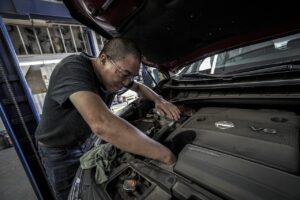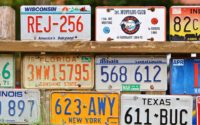Best Way to Find Car Recalls
If you own a car, staying up-to-date on any recalls issued by the manufacturer is essential. Car recalls can be issued for various reasons, and staying informed about them is critical for safety. In this article, we’ll explain how to find out if your car has received any recalls and what you should do if it has.
What are Car Recalls?
When a car is recalled, the manufacturer has identified a safety issue with the vehicle and is asking owners to bring their cars in for repairs. Recalls are issued for all sorts of reasons, from manufacturing defects to problems with the design or performance of the vehicle.
If you own a recalled car, you should take it to a dealership or authorized repair shop as soon as possible to have the problem fixed. In some cases, the recall may require you to replace parts or have major repairs done, so it’s essential to get it taken care of immediately.
You can find out if your car has been recalled by checking the National Highway Traffic Safety Administration’s website at www.safercar.gov/recalls. Just enter your car’s 17-digit vehicle identification number (VIN), and you’ll be able to see if there are any open recalls on your vehicle.
How to Check for Recalls
If you’re concerned that your car may have been recalled, there are a few different ways to check. First, visit the National Highway Traffic Safety Administration’s (NHTSA) website and enter your car’s make and model. This will bring up any recalls that have been issued for your vehicle.
Another way to check for recalls is to contact your car’s manufacturer directly. They should be able to tell you if any recalls have been issued for your specific vehicle.
Finally, you can also check with your local dealership. They should be aware of any recalls issued for cars they sell.
Don’t panic if you find out that your car has been recalled, don’t panic! There are steps you can take to get the problem fixed. In most cases, the manufacturer will repair the issue free of charge.
Common Recall Issues
There are a few common issues that can cause a car recall. One is if there is a problem with the design of the car. Another is if there is a manufacturing defect. Finally, if there is an issue with how the car was assembled, this can also lead to a recall.
What to Do If Your Car Has a Recall
If your car has a recall, it is essential to take action right away. Depending on the severity of the recall, you may need to take your vehicle to a dealer or authorized repair facility to have the issue fixed. In some cases, you can fix the problem yourself.
You can check online or contact your local dealership to determine if your car has a recall. When checking for recalls, you will need your car’s Vehicle Identification Number (VIN).
If your car does have a recall, make sure to follow the instructions from the manufacturer. Ignoring a recall can put you and your passengers at risk.
Find Recalls by VIN
If you have a car, you can find out if there are any recalls on it by its VIN. The VIN is a 17-digit code that uniquely  identifies your vehicle. You can find it on your car’s registration card, insurance card, or the driver’s side doorjamb.
identifies your vehicle. You can find it on your car’s registration card, insurance card, or the driver’s side doorjamb.
To find recalls by VIN, go to SaferCar.gov and enter your VIN in the “Search for Recalls by Vehicle Identification Number (VIN)” field. If there are no recalls for your vehicle, you will see the message “No recalls found for this VIN.”
Benefits of Checking for Recalls
There are many benefits to checking for car recalls:
- It can help keep you and your family safe by ensuring your vehicle is updated on safety standards.
- It can save you money by avoiding costly repairs or replacements.
- Knowing that your car is safe and reliable can give you peace of mind.
Importance of Staying Up to Date With Car Recalls
Staying up to date with car recalls is crucial because they can pose a severe safety hazard. If you are driving a vehicle that has been recalled, you could be putting yourself and others at risk.
There have been many high-profile cars recalls in recent years, so it’s essential to be aware of the potential risks. In some cases, recalls are issued because of manufacturing defects that could cause the car to malfunction. In other cases, recalls are issued because of safety concerns, such as a problem with the airbags or seatbelts.
If you receive a recall notice for your car, it’s important to take action immediately. You should bring your vehicle to a dealership or authorized repair facility to have the problem fixed. Sometimes, you can get a refund or replacement vehicle if the recall is severe enough.
If you need to check whether your car has been recalled, you can check the National Highway Traffic Safety Administration website. Just enter your car’s make and model, and you’ll see any open recalls that apply to your vehicle. You can also sign up for email alerts from the NHTSA to stay informed about future recalls.
Conclusion
Car recalls are an essential way to ensure the safety of vehicles. With the correct information and resources, you can easily find car recalls that affect your vehicle. Start by looking up the VIN of your car in a government database to see if there have been any recent recalls or service bulletins related to it. Additionally, you can watch news reports for any new recall announcements from automakers or dealerships. Finally, make sure to get regular check-ups done on your vehicle so that potential issues with recalled parts are quickly addressed before they become dangerous problems down the road.



